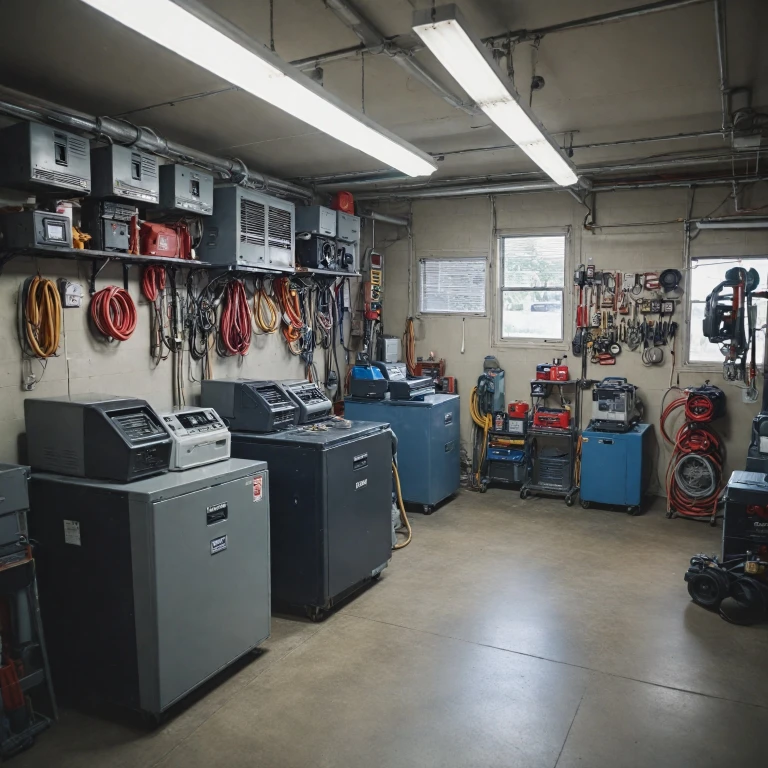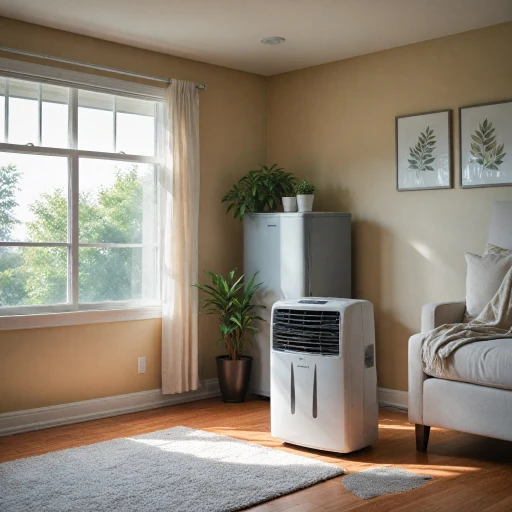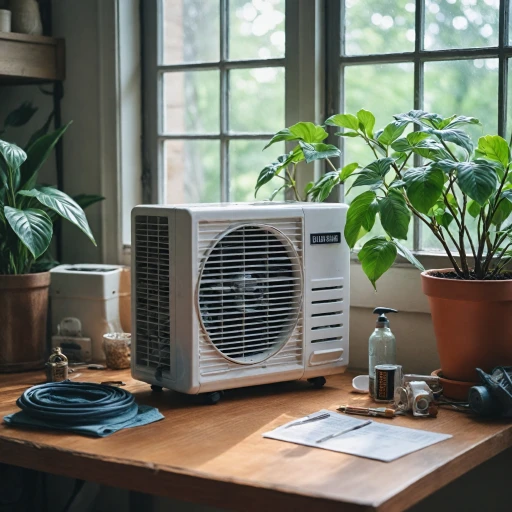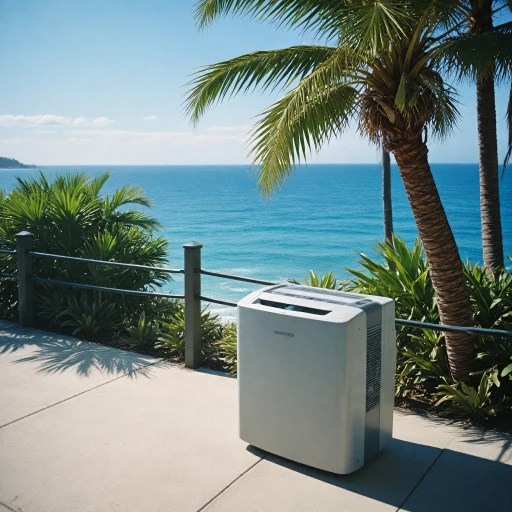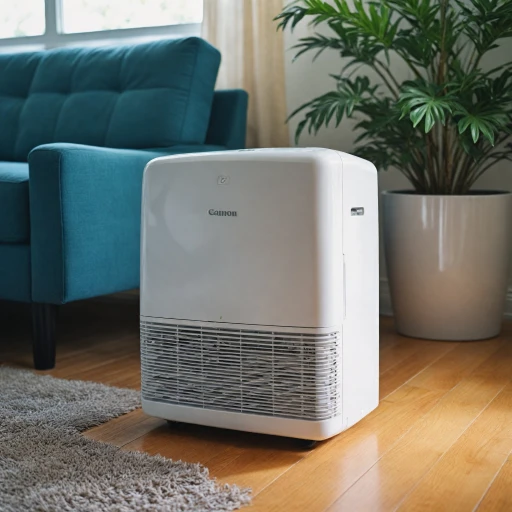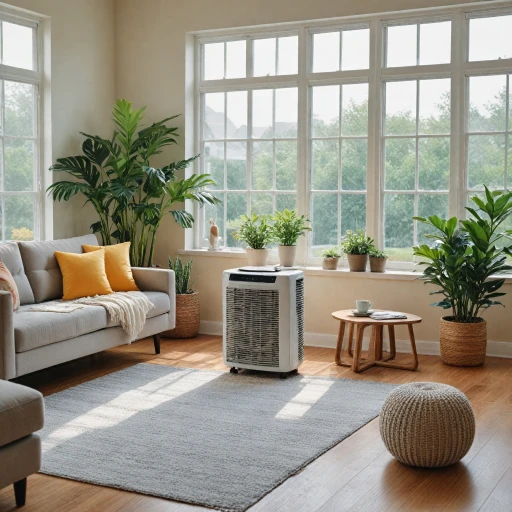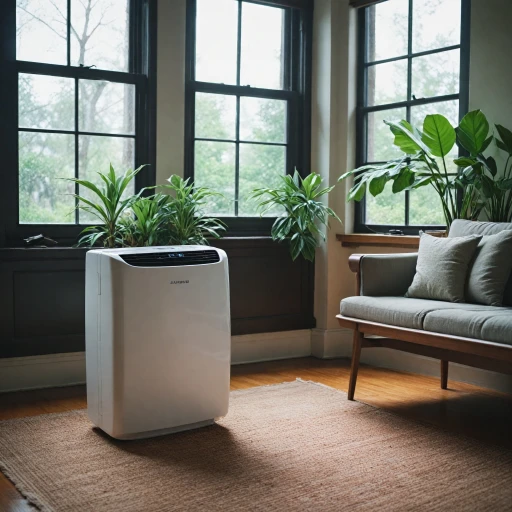
Understanding the Need for a Garage AC Unit
Deciphering Your Garage's Cooling Requirements
Before diving into the specifics of picking the right air conditioner unit for your garage, it's essential to comprehend why an AC unit might be a necessity in the first place. Garages, especially those used as workshops or additional living spaces, often experience elevated temperatures, primarily during the summer months. This increase in heat can stem from various sources, such as inadequate insulation, limited windows, and the typical garage door openings. Additionally, if you keep a car in your garage, the prolonged heat retention from a vehicle's engine can exacerbate the temperature conditions.- Versatile Use of Space: Whether you're DIYing, working on your car, or even using it as a mini home gym, a well-cooled garage can be crucial for comfort.
- Equipment and Material Safety: Excessive heat and humidity can be damaging to tools, stored materials, and even your vehicle's battery. An efficient cooling system can help in preserving these items.
- Energy Efficiency and Cost: Selecting an air conditioning unit that's energy-efficient can mitigate the costs associated with cooling this type of space, where insulation might not be optimal.
Types of Portable Air Conditioners for Garages
Exploring Portable Air Conditioning Options
When it comes to cooling your garage, you have a range of portable air conditioner options to consider. These units provide flexibility as they can be moved around to target areas that need the most attention, making them ideal for variable space usage such as a garage. Here are the primary types of portable air conditioners you can choose from:- Window Units: These are compact and fit directly into your garage window. They are ideal for a garage with available window space and can easily cool a modest area.
- Mini Splits: The ductless mini-split system provides efficient cooling without the need for extensive ductwork. Best for a garage where you might want heating and cooling joined in one system. Mini-splits are well-suited to climates where a range of temperature control is necessary.
- Portable Units: These are the most versatile, allowing you to move the air conditioner wherever it is most needed. They often require access to a window or door to vent out the heat. Consider units with higher BTU ratings if your garage space is large.
Key Features to Consider
Important Factors when Selecting a Cooling System for Your Garage
When it comes to choosing an air conditioner for your garage, considering the key features is crucial. You want to ensure that the unit you select not only cools effectively but also suits your specific needs and space constraints. Here are some important factors to keep in mind:
- BTU Rating: This is a critical factor in determining the cooling capacity of air conditioners. When selecting a portable unit, ensure it has the appropriate BTU rating for the size of your garage. A larger space will require a higher BTU rating to cool effectively.
- Type of Air Conditioner: You have several options, including portable, window, and ductless mini split systems. Each type has its own set of benefits. Portable units are flexible and easy to move, window units are more permanent solutions, while ductless mini splits provide both heating and cooling capabilities and can be installed on a wall without the need for ductwork.
- Energy Efficiency: Look for systems that offer high energy efficiency to save on your electricity bills. Make sure the unit has a good energy efficiency ratio (EER) or seasonal energy efficiency ratio (SEER). Some modern systems are designed to be highly efficient, which can be beneficial in controlling energy costs.
- Installation Ease: Consider how easy or complex the installation process is for each type of unit. Portable units are often simple to set up with minimal tools required, while window units may need more effort. Ductless mini split systems will require professional installation, yet they offer a clean and joined jan appearance.
- Space Requirements: Evaluate the physical space in your car garage. Ensure that the air conditioner does not obstruct any space or make it difficult to maneuver around. Portable air conditioners are typically compact, making them a convenient choice for smaller garages.
- Additional Features: Some units come equipped with added features such as smart controls, remote operation, and programmable timers, which can enhance convenience and cooling management.
By taking these factors into account, you can choose the best garage portable air conditioner that meets your cooling and budget needs while ensuring comfort in your workspace or hobby area.
Installation Tips for Garage AC Units
Getting Your AC Unit Up and Running in the Garage
Installing a portable air conditioning system in your garage can be straightforward with the right approach. Whether you opt for a ductless mini split, a window unit, or any other portable unit, following these guidelines will ensure optimal performance and efficiency.- Choose the Right Spot
- It's crucial to decide on a location where the air conditioner can efficiently cool the space. Positioning the unit near a garage window or an accessible external wall is ideal for venting purposes.
- Ensure the chosen area is free of any obstructions to allow for adequate airflow and avoid placing it near a garage door that might frequently open.
- Assess Power Requirements
- Estimate the BTU needs of your garage based on size and insulation. A mini split might be suitable for larger car garages with high heat loads, while a compact window unit could suffice for smaller spaces.
- Verify your garage’s electrical system supports the power draw of the chosen air conditioner to prevent overloading.
- Venting for Portable Units
- For portable air conditioners, root the exhaust hose outside through a window or a specifically designed vent hole. Ensure a tight seal around the vent to maintain energy efficiency and cooling effectiveness.
- Professional Setup for Mini Splits
- Ductless mini splits often require installation by a professional as they involve mounting parts on walls and potential connection to refrigerant lines.
- Once installed, these split systems provide both cooling and heating benefits, making them a versatile option for year-round use in the garage.
- Secure Installation for Window Units
- When using a window unit, it's important to securely mount the air conditioner in the window, ensuring a solid fit to prevent it from falling. Joined jan instructions and manuals typically offer detailed setup guides to assist.
- Check for Leaks and Insulation
- After installation, inspect the unit and surrounding areas for leaks or gaps that could impede the system’s efficiency.
- Consider adding insulation to the walls and ceiling to enhance the cooling performance and maintain the desired garage temperature.
Maintenance and Troubleshooting
Regular Maintenance for Optimal Performance
To ensure your portable air conditioner functions efficiently in your garage, regular maintenance is crucial. This involves cleaning or replacing filters, checking for leaks, and ensuring the unit is free from dust and debris. A well-maintained unit not only cools your space effectively but also extends the lifespan of the system.
Troubleshooting Common Issues
Even the best garage air conditioning systems can encounter issues. Common problems include inadequate cooling, unusual noises, or water leaks. If your unit isn't cooling as expected, check the BTU rating to ensure it's suitable for your garage size. For noise issues, inspect the fan and compressor for any obstructions. Water leaks might indicate a blocked drainage system, which can often be resolved by clearing the blockage.
Energy Efficiency and Cost Management
Maintaining energy efficiency is essential for keeping costs down. Regularly check the seals around your garage door and windows to prevent cool air from escaping. Additionally, consider using a programmable thermostat to manage the temperature effectively. This not only saves energy but also reduces wear and tear on your unit.
Professional Servicing
While some maintenance tasks can be done by yourself, it's advisable to have your portable air conditioner professionally serviced at least once a year. A professional can perform a thorough inspection, ensuring all components are functioning well and addressing any potential issues before they become major problems.
Cost and Energy Considerations
Weighing the Costs and Energy Use
When choosing the right portable air conditioner for your garage, it's vital to factor in both the initial cost and the long-term energy usage. Here are some points to consider:- Upfront Price: Portable air conditioners come in various price ranges. A simple window unit could be more cost-effective initially than a ductless mini split system, but may not be as efficient for larger spaces. Make sure to select a unit that aligns with your budget and cooling needs.
- Energy Efficiency: Look for systems with high Energy Efficiency Ratios (EER) or Seasonal Energy Efficiency Ratios (SEER). Units with better ratings are more energy-efficient, saving you money on utility bills in the long run. Consider systems specifically designed for garage spaces, as they often account for varying heat loads from garage doors and vehicles.
- Operational Costs: Factor in the electrical consumption of the air unit. A higher BTU rating might indicate stronger cooling capacity, but it also means higher energy use. Compare the operational costs across different models to find a balance that suits your space and budget.
- Heating and Cooling: Models that offer both heating and cooling capabilities can be practical in climate-controlled garages depending on your season needs. Although they might have higher initial costs, their versatility may provide better value across different seasons.

